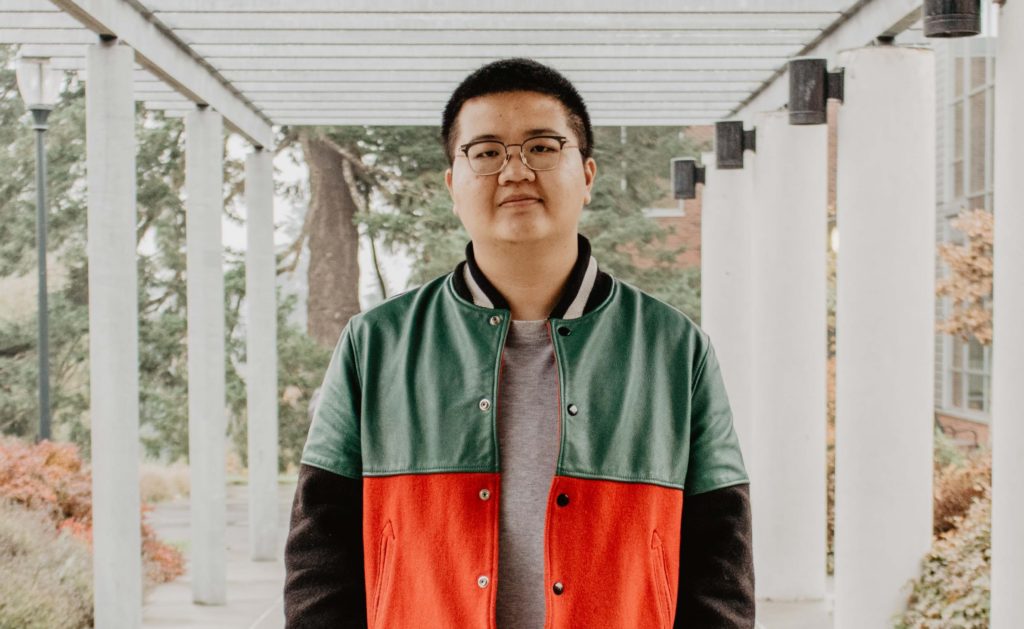‘Friendsgiving’ refers to a tradition of gathering for Thanksgiving with a group of friends instead of family, but the tradition extends past Thanksgiving. Friendsgiving has been popularized in recent years and is even on MerriamWebster’s “words we’re watching” list, meaning that it soon may be included in the dictionary. According to Statsita. com, 17 percent of people prefer to spend holiday at a friends house, making it the second most popular choice compared to celebrating at a relative’s house or at home. While there are countless reasons for the recent shift in celebration habits, a few possibilities include separated families, distance between relatives or financial reasons.
Olivia Cebollero, an integrated strategic communication major at WSU Vancouver, is staying home for the winter holidays to save money and avoid possible family drama. With her dad and sister in Seattle, mom in Texas and her boyfriend’s family in Southern California, Cebollero explains how it is difficult to include everyone in the holidays or afford the travel.
She said she considers her friend group extended family and is open to celebrating with them, “If they reach out about spending the holidays together then I’m all for it, but I’m a bit of an introvert and my friends know that I’m perfectly fine with a quiet holiday season with my dogs and boyfriend.”
Hans Min, an international student from China who is also majoring in integrated strategic communications returns home for the winter break, but did not make the trip for Thanksgiving.
Min said that due to the amount of time and money it takes to travel to China, Thanksgiving break is not long enough to go home and visit family. However, Min is not particularly bothered by this.
“I’m totally fine with this. In our culture, we don’t have Thanksgiving [or] celebrate it,” Min said.
Not being able to return home for the holidays poses a different dilemna for Min. “I almost didn’t spend any holidays with my family in [the] last five years. Although we have vacation, any important Chinese holidays are not [part of ] vacation. Especially the Spring Festival, which is [the] Chinese New Year, the most important holiday in Chinese culture,” Min said. He elaborated that Chinese international students and others away from the country usually travel back home for the celebration.
Min said he also spends time with local friends when he cannot return home. “For me, I have a lot of friends [that] can’t go home, so we’re going to travel and spend holiday together. There must be a lot of students in the school who can’t go home, we can throw a party or have a dinner together on that day,” Min said.
Like most other components of the holidays, traveling can be another financial burden. “Finances definitely play a role. I’m a full-time student and work two part-time jobs in order to pay bills so I really don’t have the flexibility to drop money on plane tickets or hotels,” said Cebollero.
She added, “It’s so hard being away from family. I’m all about my family and I’m very close to each of them so it will be very different this year. Thankfully, I have my boyfriend during this holiday season.”
Cebollero offered advice to anyone who cannot spend their holiday break with family, “Surround yourself with people you love and love you back. Whether that’s friends, co-workers, or even your pets. It makes me feel close to my family when I still decorate my apartment for the holidays. That includes little things from my childhood like family ornaments or familiar smells like pine scented candles. It gives the illusion that my family is with me.”
Hosting a potluck between friends or community members, volunteering at a food bank or homeless shelter, keeping busy with work or a hobby or simply some down time are just a few recommendations for staying in high spirits when away from home for the holidays.
“Enjoy the holidays and surround yourself with love. And food! Lots of food!” Cebollero said.

Anna Nelson is the Editor in Chief for the VanCougar. She is a senior and is studying strategic communications.
